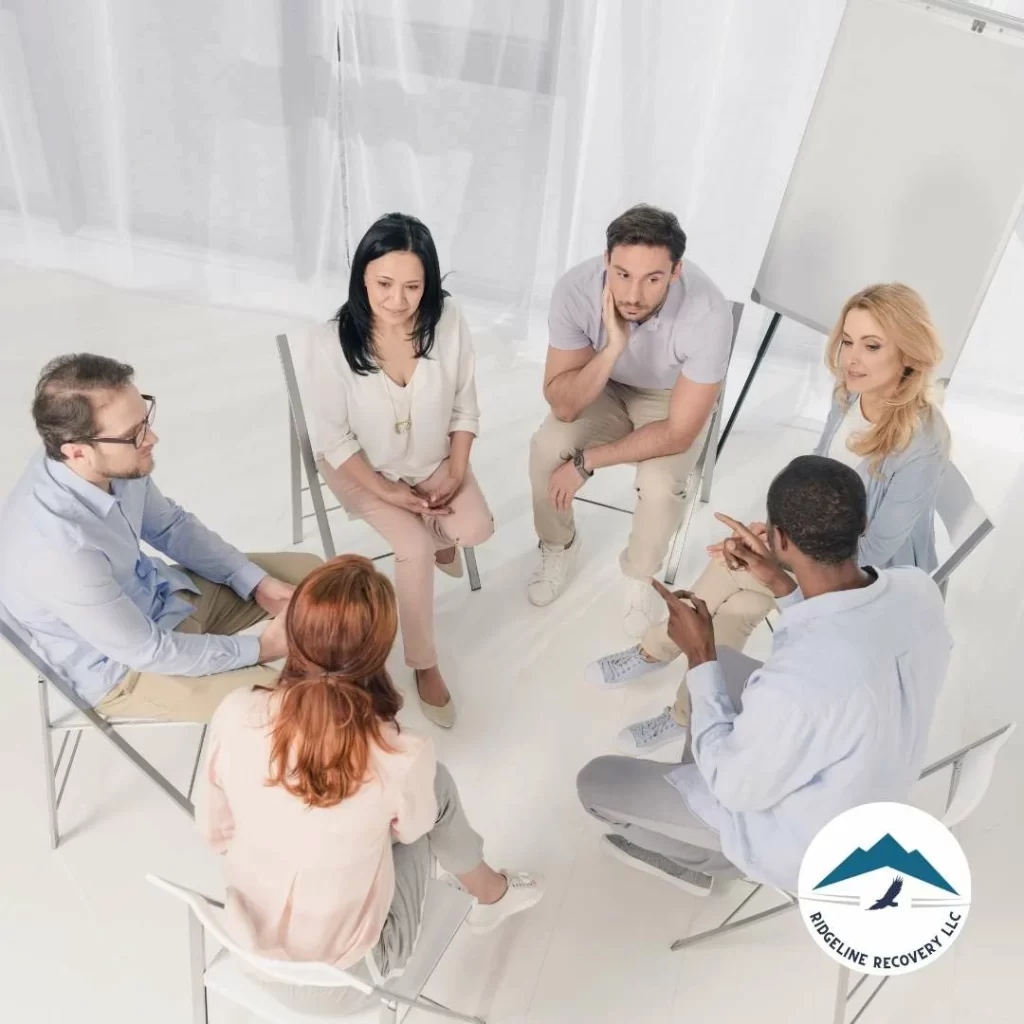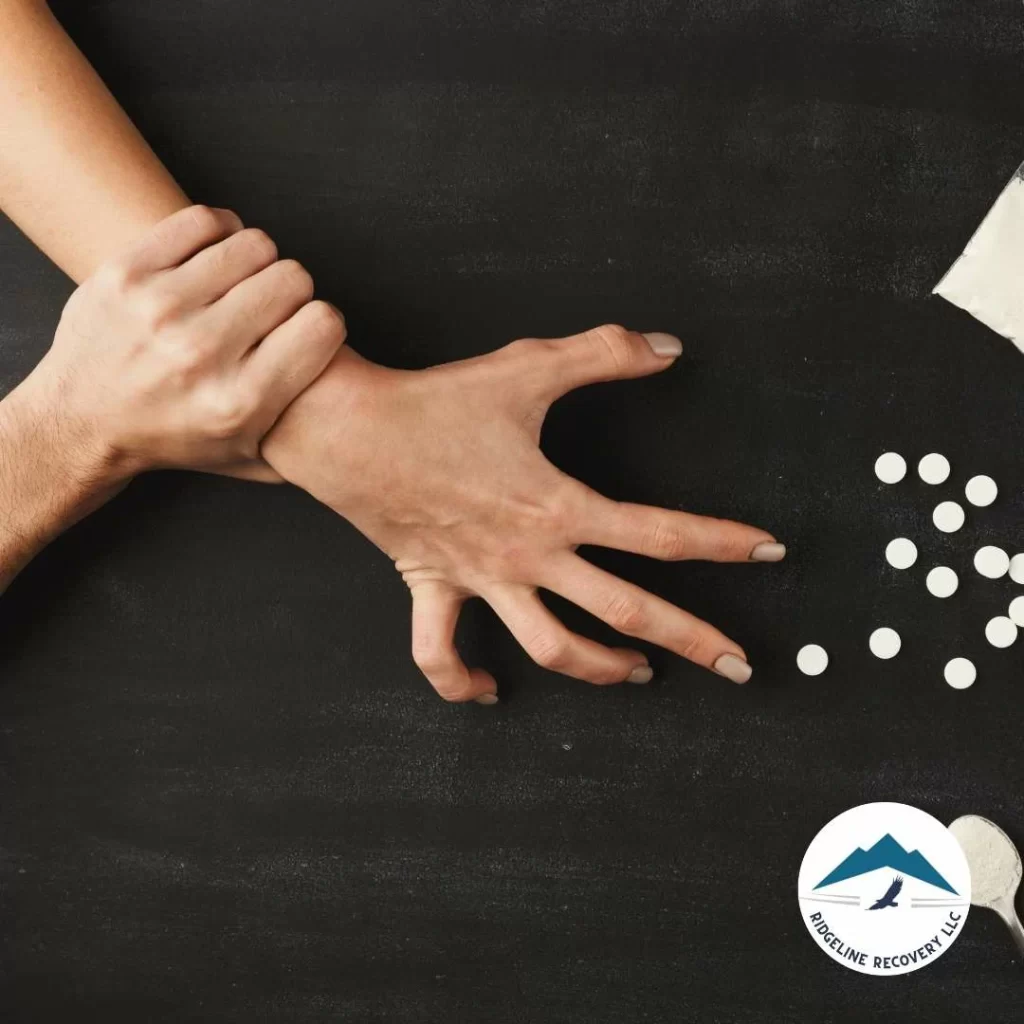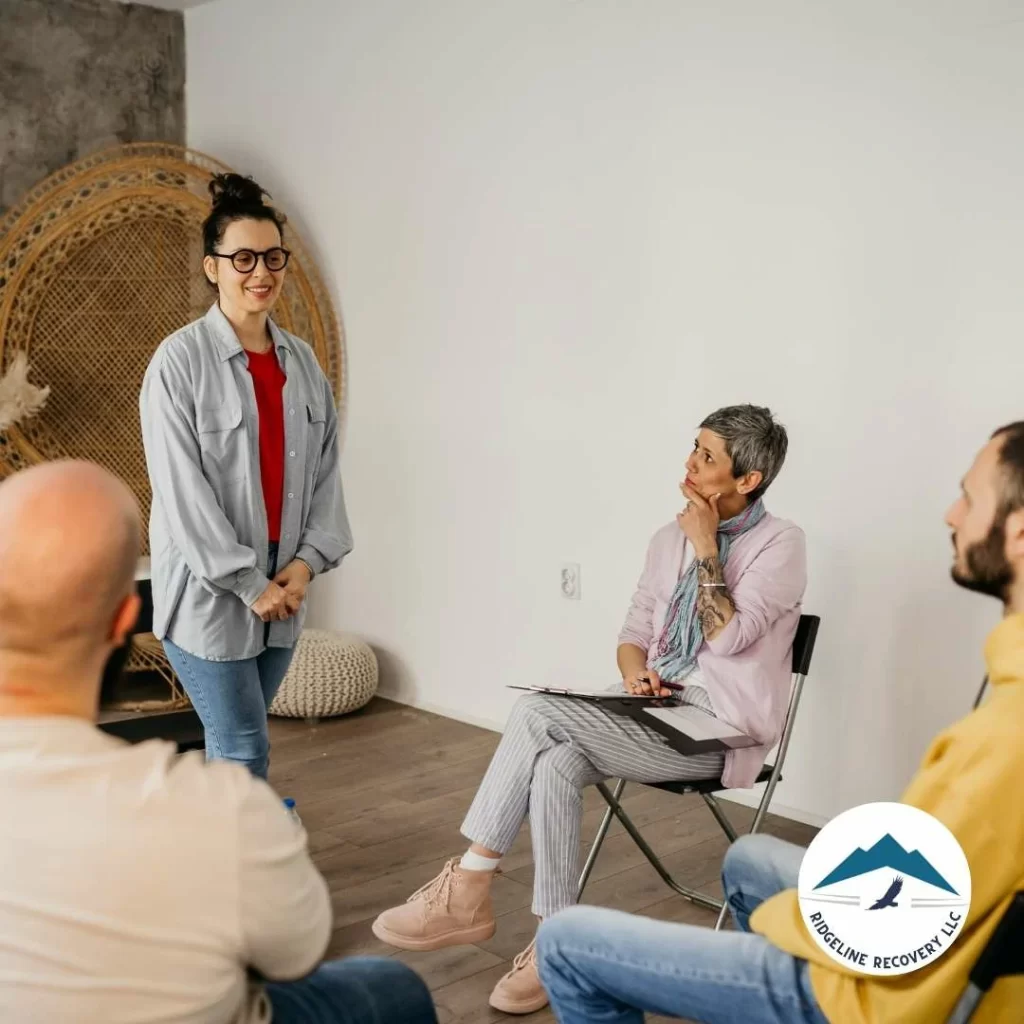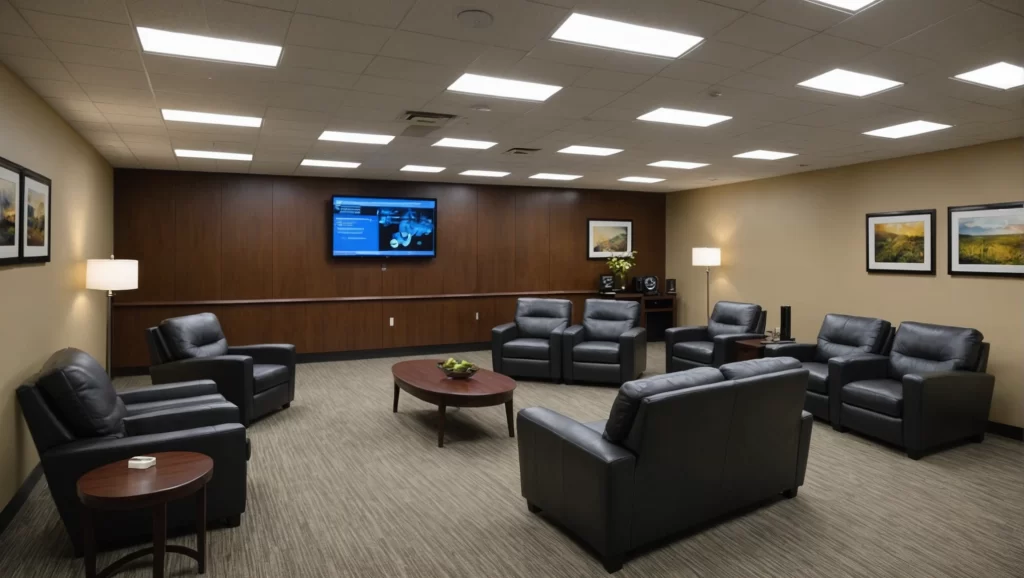
Addiction Therapy Services: What Makes It Effective in Relapse Prevention
Sitting in my poorly lit room, my choices felt weighty on my chest. My battle with addiction has seen me go through a cycle of optimism and despair, each time more lost than before. Though I had looked at numerous paths to recovery, none felt totally right. Until I came into Addiction Therapy Services, I had no idea what actually made recovery successful in preventing recurrence.
Understanding the Need for Addiction Therapy
Sometimes the term “addition therapy” refers to a phototherapy session when individuals share their hearts. Still, I did discover that it covers much more. This whole approach is designed to manage the complicated nature of addiction. It was about learning the layers under my drug or alcohol addiction and how to handle life without their crutch.
The Journey Begins: Recognizing the Problem
First step was realizing I had a problem. I vividly remember the moment I was seated with my therapist in the Columbus addiction treatment center. I knew I could not fight this war by myself even though I was terrified and anxious. The first few sessions were challenging; digging my history revealed years of suppressed emotions. But every session I felt a bit lighter, a little more under control.
The Framework of Effective Addiction Therapy
1. Cognitive Behavioral Therapy (CBT)
CBT changed the rules for me. It enabled me to identify the negative ideas fueling my addiction. I remember from one session learning about cognitive distortions like overgeneralizing and catastrophizing. My thoughts turned to defending my addiction using these techniques. Looking through this therapeutic prism, I began to perceive these thoughts as lies I told myself.
I used to remark, for example, “If I don’t drink, I won’t have any fun.” Using CBT, I challenged this idea and substituted the statement, “I can have fun without substances.” This shift in viewpoint helped me and became a very important healing tool in my toolkit.
2. Group Therapy: Addiction Therapy
Attending group therapy sessions at the Addiction Recovery Center Columbus introduced me to a community of individuals understanding my struggles. We shared our stories, victories, and disappointments to forge a connection I had yearned for. Hearing folks open about their challenges helped me to realize I was not by myself.
One session, I met a man named Jake whose narrative of overcoming addiction after years of war with his demons caught my attention. His story resonated with me and sparked inside a spark of hope. If he could, so could I. Group therapy allows you to see that recovery is a shared experience.
3. Holistic Approaches: Addiction Therapy
Along with tried-through methods, my road involves holistic treatment. At the Addiction Treatment Center Columbus, I practiced art therapy, mindfulness meditation, and yoga. These approaches helped me to reconnect with my body and emotions in a way that words sometimes could not.
Among the most potent events turned out to be a mindfulness retreat sponsored by the Institute. Tucked out in the countryside, we practiced moderate yoga, breathing exercises, and meditation. It was during this retreat that I learned to sit with my feelings instead of running from them. Since this mindfulness approach enabled me to respond to impulses with awareness rather than instinct, it became a pillar of my recovery.
4. Aftercare and Continued Support: Addiction Therapy
As I progressed through my treatment, I began to recognize that my road did not end with program success. The greatest addiction therapies Columbus provides stress the significance of aftercare programs. These programs promised continuous help, thereby ensuring I wouldn’t tackle the challenges of rehabilitation on my own.
At the Addiction Recovery Center Columbus, I paid weekly follow-up visits to my therapist. We discussed the highs and lows of my week and celebrated achievements—no matter little. Reminded of my development, this frequent review kept me accountable and driven.
The Role of Addiction Therapy in Relapse Prevention
Understanding Triggers
One of the most crucial lessons in treatment was on triggers. My therapist challenged me to identify the events, people, and emotions triggering my desires. I began keeping a notebook in which I noted when I felt the need to use and the situations surrounding those feelings.
This activity let me observe patterns in my behavior. For instance, I discovered that one of the main causes of my anxiety was my job. Knowing this enabled me to develop strategies for better stress management, such running or mindfulness exercises.

Creating a Relapse Prevention Plan: Addiction Therapy
My therapist worked with me to design a unique relapse prevention plan appropriate for my situation. This strategy includes rules on what to do should I find myself in a high-risk situation, a list of persons I might call for aid, and some strategies for controlling impulses.
- Coping Strategies: I compiled a list of activities I could do when cravings hit. This encompassed walking, calling a friend, or diving into a fantastic book. The goal was to re-energize and appreciate unhurried physical activity.
- Support Network: Building a support system started to be really crucial. I sought the help of friends and relatives on my path. Knowing that some of my people cared changed everything.
- Emergency Contacts: My approach includes emergency contacts, folks I could call should I feel swamped. Just knowing I had someone to rely on calmed me down.
The Importance of Aftercare: Addiction Therapy
Once my treatment concluded, I discovered that maintaining my recovery mostly depends on aftercare facilities. Many feel they could run everything on their own after they stop getting treatment. While daily living might be demanding, aftercare provides essential support at this sensitive time.
At the Addiction Treatment Center Columbus, I took part in aftercare programs comprising support groups, continuous therapy, and community events. These tools kept me in touch with my recovery network and strengthened the understanding that I was never on my path alone.
Success Stories: Inspiration for Recovery
I had the excellent opportunity to learn many success stories from others who had successfully managed their addiction under different treatment regimes. These stories always ended with hope and success, even if they occasionally highlighted suffering.
Among others, Sarah gave me inspiration. She had battled severe addiction for more than ten years; then, she found her road to recovery with programs for addicts. Her speech on her road enabled me to see that rehabilitation is indeed possible even under the most difficult circumstances. Her story validated my belief that relapses are really rare in addiction treatment.
The Benefits of a Personalized Treatment Approach
The customized treatment approach the Addiction Treatment Center Columbus offered set apart my experience. The staff spent time learning my specific needs and preferences, which helped to change my course of therapy. Most importantly on my road of healing, this customized care made me valuable and understandable.
Addressing Co-Occurring Disorders
Many addicts often struggle with accompanying mental health issues. I was not one of the exceptions. Therapy let me understand that resolving my underlying mental health issues is essential for long-term recovery. My therapist helped me across these challenges by way of coping strategies for anxiety and sadness.
Combining mental health therapy with addiction treatment lets me see my full well-being. This twin approach was absolutely essential in avoiding recurrence since it assured me that I was addressing the fundamental causes of my addiction.

Finding the Right Addiction Treatment Center in Columbus
While selecting the right addiction treatment center Columbus can be scary, a good road to recovery depends on it. Looking for the suitable facility, I learned about some crucial factors to consider:
- Accreditation and Credentials: Check whether the center is run under qualified professionals with credentials and is accredited. This guarantees that you are receiving evidence-based treatment fit for your needs.
- Variety of Treatment Options: Look for centers offering among other therapy options individual, group, and holistic therapies. With a whole approach, you are more likely to find what suits you.
- Aftercare Programs: Inquire about alternatives for aftercare to ensure continuous support once programs end. A good aftercare program is absolutely vital in preventing recurrence.
- Client Reviews and Success Stories: Client Reviews and Success Stories: Search for first-hand reports of program attendees. Their accounts might provide perceptive evaluations of the performance of the center.
The Power of Community in Recovery
I came to observe along the road the enormous impact the community can have on recovery. In terms of a sense of belonging, it was quite valuable to be surrounded by supportive others who had experienced similar circumstances.
Engaging in Local Support Groups
I searched for neighborhood support groups in addition to the therapy sessions at the Columbus Addiction Rehabilitation Center. Since it allowed me to contact folks in recovery, regular attendance of these meetings became second nature to me. We encouraged each other, celebrated our successes, and traded our challenges.
Building Lifelong Connections
A couple of the connections I formed at this time evolved lifetime relationships. Through highs and lows, we supported each other knowing that rehabilitation is a journey best traveled alongside. These relationships helped me to realize that I never battled by myself.
Embracing the Journey of Recovery
When I think back on my road through Addiction Therapy Services, I am overwhelmed with thankfulness for the knowledge acquired and progress made. Though it is not always easy, I have discovered that with the right mindset and help it is fairly possible. From what I know, effective addiction therapy is about building a life that is fulfilling and worth living—not merely about avoiding drugs.
The Continuous Nature of Recovery: Addiction Therapy
Recovering is a continuing process; it is not a destination. I can see now how to welcome the journey and its challenges. On other days, I am overcome with hunger; nonetheless, I remind myself of the tools and strategies I have acquired. Most of the time I rely on my support system and continue to apply my relapse prevention plan.
Regular therapy allows me to navigate the complexities of life without medications. Every step forward counts as a victory, regardless of smallness. I have been better able to control tension and more sensitive to my emotions.
Learning from Setbacks
Setbacks abound on the road to rehabilitation; I have come to recognize that they define nothing about me. One hard week I found I was stressed and that old habits were resurfacing. It was a wake-up call reminding me of the significance of keeping attentive and in contact with my support network.
Rather than allow this setback to stop me, I told my therapist about my problems. Working together, we developed a plan to address my challenges, therefore highlighting the importance of flexibility in my recovery journey. This meeting let me realize that even while obstacles can be unpleasant, they can also be teaching opportunities that enable me to get stronger.
The Role of Self-Care
As my recovery advanced, self-care became much more crucial. Maintaining sober forced me to look after my mental, emotional, and physical health. These days, my everyday routine largely consists of happy interests like painting, hiking, or simple reading.
Including self-care methods has helped me more effectively manage stress, therefore reducing the likelihood of cravings. Establishing boundaries and giving my needs first priority also taught me the need of promoting a decent way of life.
Finding Purpose and Meaning: Addiction Therapy
As I traveled, I looked for direction and purpose in my life apart from addiction. Beginning in a local community center, I guided others in negotiating their routes of healing. Apart from enabling me to return, this meeting reaffirmed my determination to remain sober.
Helping others reminded me of my own difficulties and the importance of connection for recovery. It began a positive feedback loop that raised my drive to be clean and fulfilled the kind of gratification I had been longing for.
The Future of Recovery
Looking forward, I see a lot of brightness. Addiction Therapy Services has equipped me with tools and skills allowing me to squarely tackle challenges. Though I understand mending is not a straight route, I now have the will to negotiate the ups and downs.
Continued Growth and Learning: Addiction Therapy
I commit myself to be continually growing and learning. My road is long-term hence I welcome opportunities to learn more about addiction and recovery. Whether that means attending seminars, reading books, or talking with others in recovery, I see the need of continuing to be engaged in my healing path.
Sharing My Story
Looking back on my road makes me wish to share with others my tale. This will help me to welcome the transformative power of therapy and inspire those who might be addicts to seek treatment. In our societies, I believe that sharing our experiences helps to build understanding and develop relationships.
Emphasizing Hope: Addiction Therapy
One of the most important things I have learned is that hope greatly speeds up change. Though darkness is brought by addiction, hope is only waiting on the horizon. I urge everyone battling addiction to dream about recovery. There are roads of healing and a community ready to support you.
Conclusion: Embracing a New Chapter
In the end, my road through Addiction Therapy Services has given me a precious understanding of resiliency, connection, and optimism. It has shown me that, by being a comprehensive process, excellent addiction treatment tackles the complexities of addiction and fosters long-lasting transformation. Therapy has enabled me to exercise self-compassion, learn to live a happy life, and welcome the present.
restoring is about restoring one’s life, not merely about avoiding drugs. It’s about building relationships, valuing little pleasures in daily life, and pointing one in the right way. My created tools and strategies over time have enabled me to elegantly and resiliently manage the challenges of recovery.
I start this new period of my life anticipating and with confidence. I am not more afraid even if the road still offers challenges. The chances that lie ahead excite me since I have come to welcome every day as a chance for growth and metamorphosis.

Call Us Now!
Get in touch with Ridgeline Recovery Center in Columbus Ohio right now if you or a loved one is looking for help with heroin or alcohol dependency. At Ridgeline Recovery’s Addiction Recovery Center in Columbus, Ohio, we offer hope and healing. With services like Medicaid, MAT, Counseling, IOP, Mental Health Services, and aftercare programs, we guide you towards recovery and a brighter future.
For more stories and information Contact Us, visit our Blog page and Stories & Highlights.



